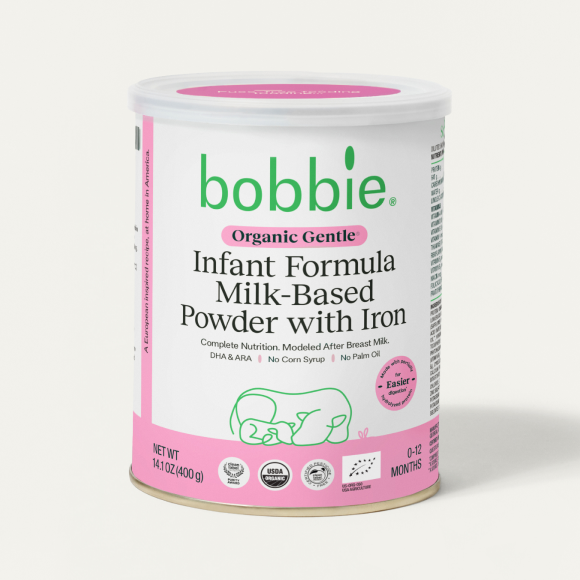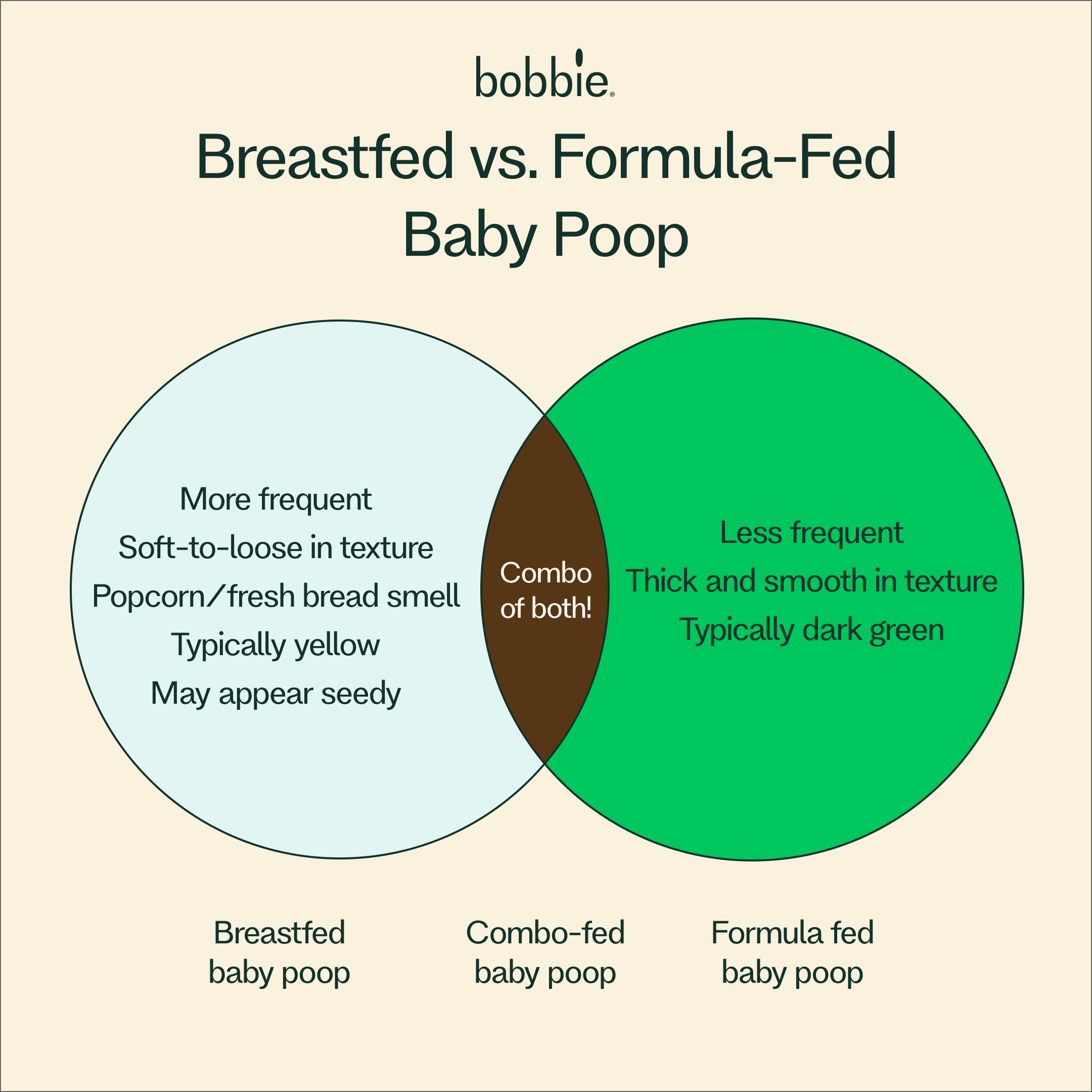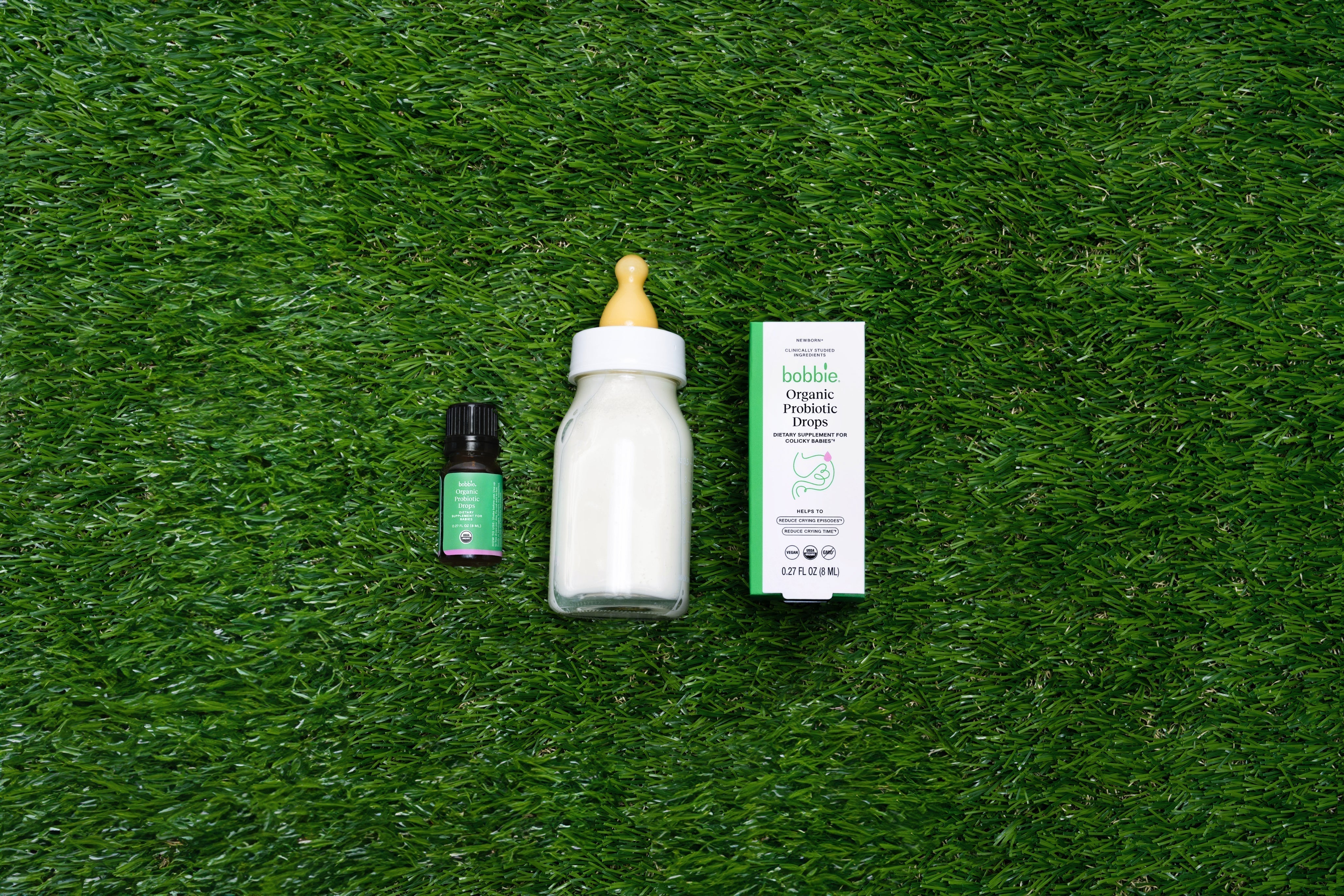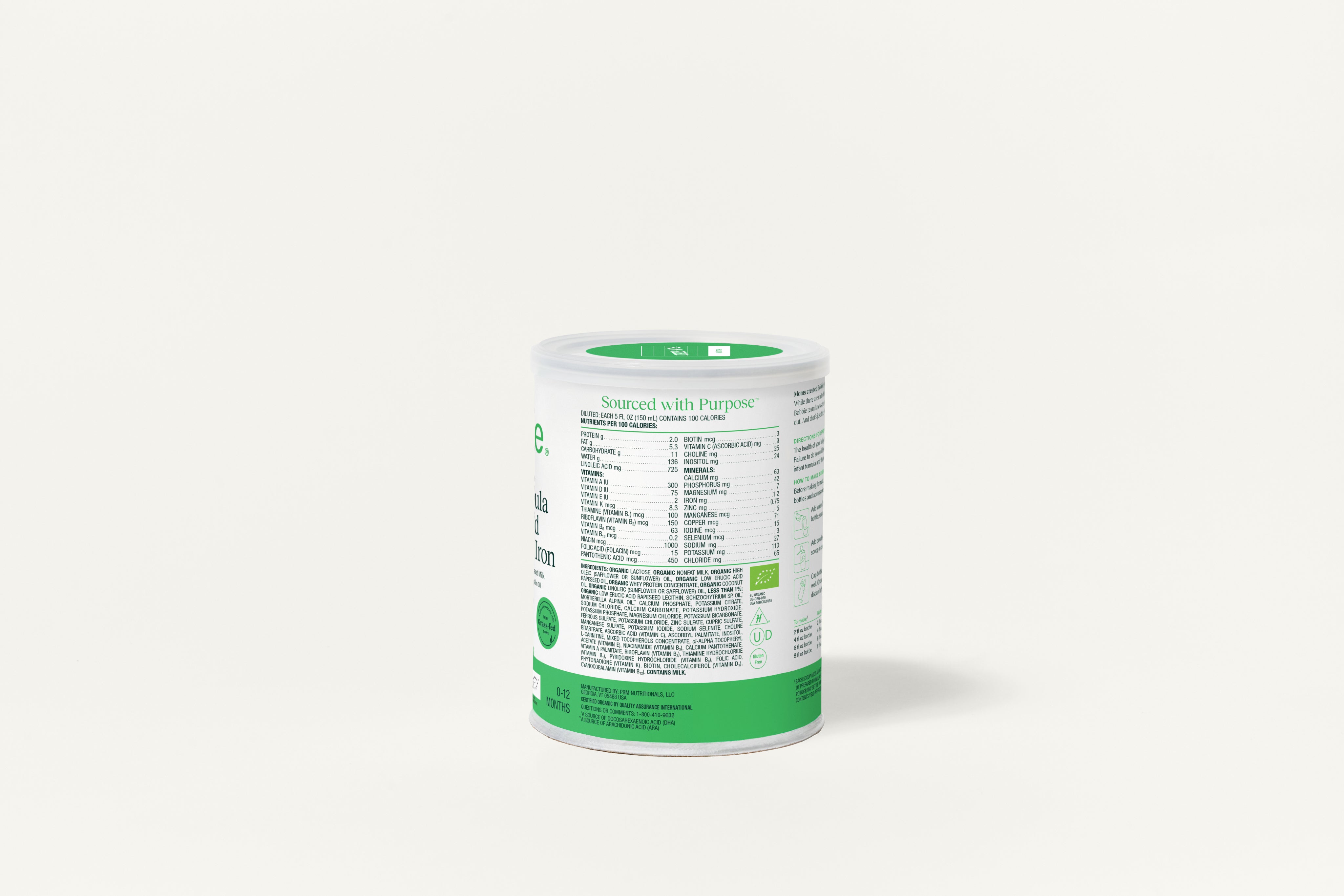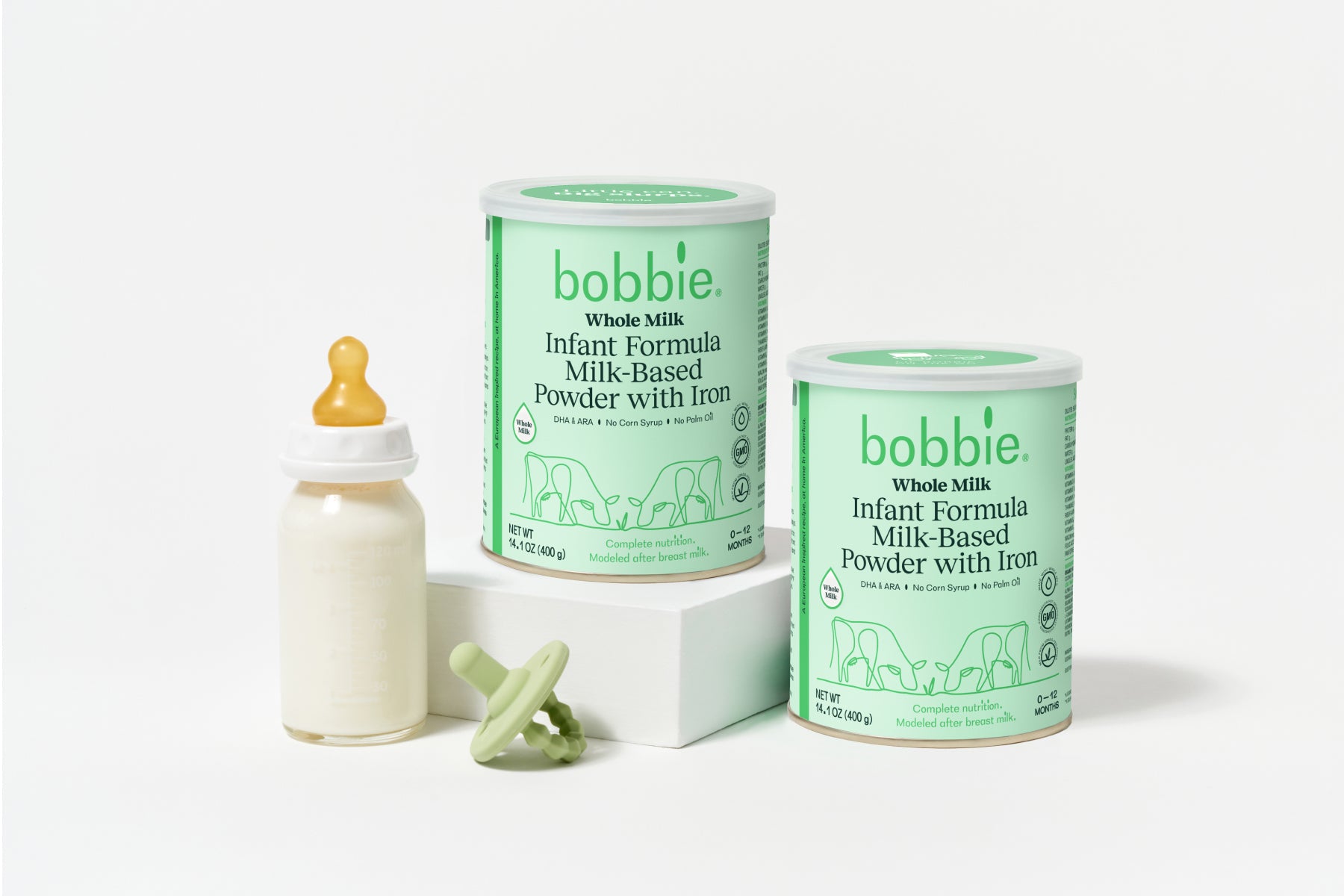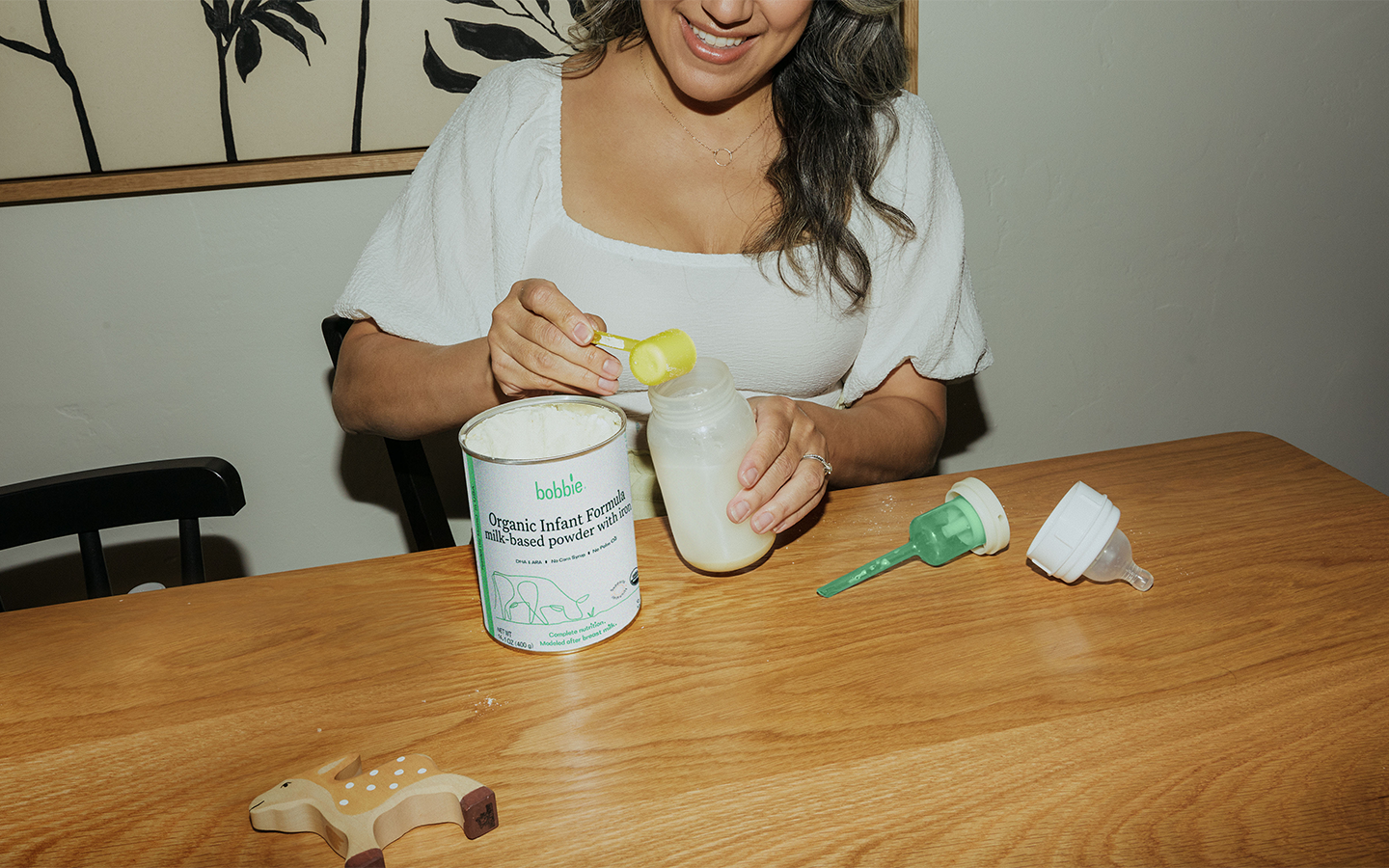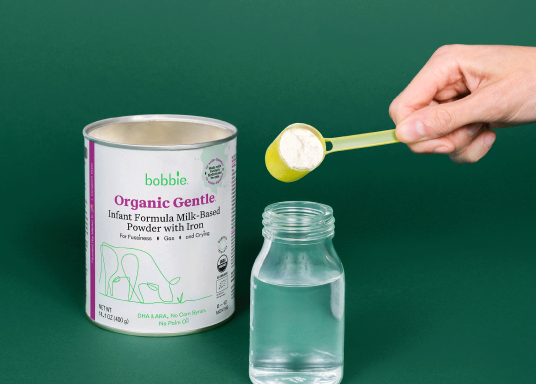Published October 25, 2024
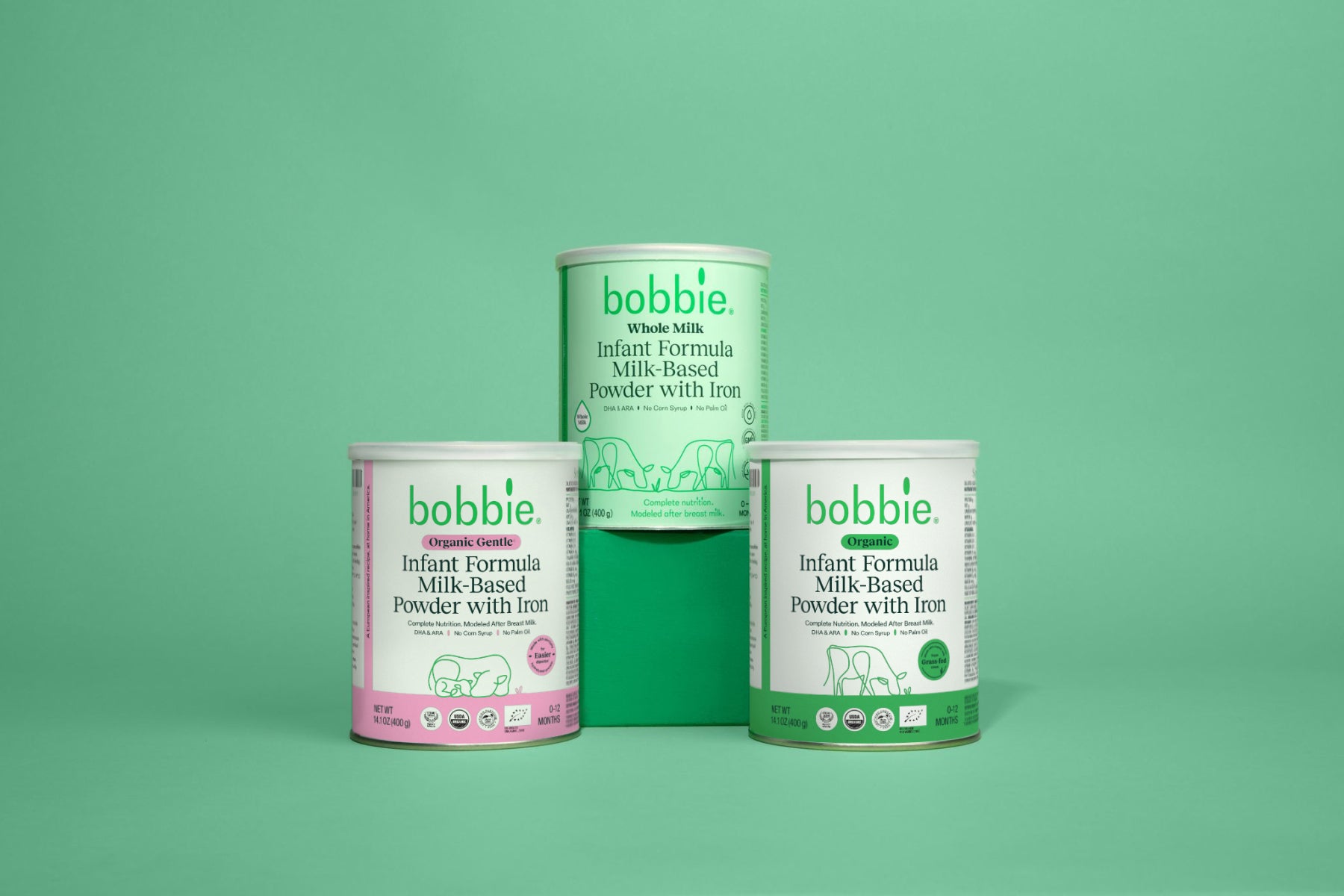
Essential Infant Nutrition Guidelines: What Every Parent Should Know
As a parent, you want to give your baby the best start for healthy growth and development — and that begins with proper nutrition. But with so much information out there, it’s easy to feel overwhelmed and unsure of what's best for your little one.
That’s why we’re covering everything you need to know about infant nutrition, along with helpful tips to make mealtime smooth and easy. Whether you’re breastfeeding, formula feeding or getting ready to introduce solids, breaking down the essentials will help you feel confident and empowered every step of the way.
The Importance of Infant Nutrition for Lifelong Health
Following proper dietary guidelines is fundamental for your child's health — especially during the first three years of their life. Why? According to the World Health Organization (WHO), proper feeding during this critical window reduces morbidity and mortality, lowers the risk of chronic diseases later in life and promotes healthy mental and physical development.
In the early months, rest assured that breast milk or infant formula provides all the essential nutrients for your baby’s health, supporting their developing brain, immune system and physical growth. Around six months, it's time to consider introducing solid foods, opening up a whole new world of tastes and textures.
Simply put, providing your baby with nutrient-rich foods at each stage of development gives them the best chance for optimal growth. Whether breastfeeding, formula feeding or introducing solids, every step in the feeding process plays a key role in your child’s well-being — from birth to adulthood.
Essential Nutrients and Hydration for Your Infant's Development
Good nutrition lays the foundation for a lifetime of healthy eating habits, and knowing what your baby needs can make all the difference. Infancy is a period of rapid growth and development, and infants need energy to fuel that growth. Energy, or calories, can come from a balanced mix of macronutrients, including proteins, fats, and carbohydrates. A balanced mix of macronutrients, including proteins, fats and carbohydrates:
- Proteins provide about 15% of your baby’s energy and are crucial for building muscles and tissues. Both breast milk and infant formula contain proteins — perfectly suited for supporting your baby’s early growth.
- Fats are equally important, supplying about 40-50% of their daily energy. This aids in brain development and stores energy for later use. Essential fatty acids like linoleic acid (LA) and alpha-linolenic acid (ALA), found in both breast milk and formula, are especially important for developing their nervous system and vision.
- Carbohydrates, mainly from lactose, give them the fuel they need for healthy growth — powering their bodies and brains.
Remember, micronutrients like iron, calcium and vitamin D are important, too. Iron supports the creation of healthy red blood cells, while calcium and vitamin D work together to build strong bones. And don’t forget about hydration! In the early months, breast milk or formula provides all the hydration your baby needs. But once you introduce solids around six months, make sure they’re getting enough water to meet their changing needs. Unsure how much water to offer? Ask your child’s pediatrician! Keep in mind water alone should not replace breast milk or formula at this age.
Your baby's eating habits will also shift over time, often aligning with growth spurts, which typically occur around two weeks, six weeks, three months and six months. By providing the right balance of calories, nutrients and hydration, you're setting your baby up for a healthy, happy start in life.
Bobbie Organic Infant Formula is a USDA Organic, EU-style infant formula that meets all FDA requirements. It is a complete nutrition milk-based powder modeled after breast milk and is easy on tummies. It is non-GMO and doesn't have corn syrup, palm oil, or maltodextrin. Shop Bobbie today!
Shop Bobbie Organic Infant Formula

Key Practices for Your Infant Feeding Timeline
Let’s explore some key guidelines to note for infant feeding:
Exclusive Breastfeeding
Both the American Academy of Pediatrics and the WHO recommend exclusive breastfeeding for the first six months, giving your baby all the essential nutrients they need to grow and thrive. Breast milk is loaded with antibodies, nutrients, vitamins and minerals that support the immune system and support brain development. Plus, breastfeeding helps build a special bond between you and your baby, all while offering natural protection against illnesses.
Alternatives to Exclusive Breastfeeding
Of course, breastfeeding may not work for every family, and that’s okay! Many parents choose infant formula, which is specifically designed to provide complete nutrition, modeled after breast milk. Whether due to medical reasons, returning to work or personal preference, formula feeding can be a great and reliable alternative to breastfeeding. Some parents even opt for combination feeding, providing both breast milk and formula to meet their baby’s needs. This approach offers flexibility and gives other caregivers the chance to get involved.
Introducing Solid Foods
Introducing solids is an exciting milestone, typically recommended around six months of age. It’s your baby’s chance to explore new tastes and textures while still getting essential nutrients from breast milk or infant formula. Start with simple, single-ingredient foods like pureed vegetables, fruits or baby cereal. Introducing new foods gradually is key, allowing your little one time to adjust and watching for any signs of allergies. Keep in mind, the goal is to complement breast milk or infant formula with solids, not replace it — breast milk or infant formula should remain the primary source of nutrition until 12 months.
Responsive Feeding
One important way to ensure your little one is getting the nutrition they need is by practicing responsive feeding. This means paying close attention to your baby’s hunger and fullness cues. Infants naturally signal when they’re hungry, like sucking on their hands or turning toward the breast or bottle. Similarly, they’ll stop feeding or turn away when they’re full. By staying in tune with these signals, you help your baby regulate their intake and develop healthy eating habits. Plus, it builds trust and security as they learn their needs are being met every step of the way.
Infant Nutrition Tips and Tricks To Keep in Mind
Just as a healthy diet sets your little one up for a bright future, inadequate nutrition can have the opposite effect. Without the right nutrients, your baby could face issues like malnutrition or developmental delays, and it may even weaken their immune system or increase the risk of chronic health problems later in life. To help you navigate infant nutrition, here are some key tips and tricks to ensure your baby gets the nourishment they need:
- Follow a flexible feeding schedule: While routine matters, staying flexible is key. A baby’s hunger can change from day to day, so watch for their cues rather than sticking strictly to the clock. This ensures they’re getting what they need when they need it.
- Ensure a comfortable feeding environment: Whether breastfeeding or bottle-feeding, make sure you and your baby are comfortable. A calm, cozy setting helps your little one stay focused on feeding and can create a more enjoyable experience for both of you.
- Stay hydrated: Proper hydration is just as important for you as it is for your baby. If you're breastfeeding, be sure to drink plenty of water to keep your milk supply up. Even if you’re formula-feeding, staying hydrated helps you feel your best and ready to handle whatever parenthood throws your way.
- Introduce solids gradually — and at the right time: Solids should generally be introduced around six months of age. Start with simple, single-ingredient foods and give your baby time to adjust to each new taste. This approach helps supplement with necessary nutrients while giving you the chance to watch for any signs of allergies or reactions.
- Avoid foods that are unsafe or pose a choking risk: Some foods, like honey, whole nuts and popcorn, can be dangerous for infants. Keep an eye out for choking hazards, and when it comes to allergenic foods, introduce them early and carefully — and always check in with your pediatrician before doing so if your child may be at high risk for an allergy, such as if they have eczema or a family history of food allergies.
- Stay patient and positive: Feeding can sometimes be challenging, especially when introducing new flavors or textures. Stay patient and positive, encouraging your little one to explore food at their own pace.
- Consult with your pediatrician: If you have any concerns about feeding, nutrition or growth, your pediatrician is always there to help. They can offer personalized advice to ensure your baby is getting exactly what they need to thrive.


Your go-to resource for all things new baby.
Sign up to get the scoop on feeding, sleep, poop, and so much more.
By singing up for email, you are to receive marketing emails from Bobbie and can manage your email preferences or unsubscribe at anytime
Bobbie: Your Partner in Healthy Feeding
Giving your baby the right nutrition sets them up for a lifetime of health and happiness, and understanding their unique needs is a key part of the process. And remember, your pediatrician is always your best resource for guidance along the way.
As you navigate your baby’s feeding journey, consider Bobbie as your partner in healthy feeding. Our organic infant formula, whole milk infant formula and organic gentle infant formula are crafted to support your little one’s development and keep them thriving, so you can feel confident in giving them the best start possible.
Ready to get started? Shop Bobbie organic infant formula today!
Bobbie Organic Infant Formula is a USDA Organic, EU-style infant formula that meets all FDA requirements. It is a complete nutrition milk-based powder modeled after breast milk and is easy on tummies. It is non-GMO and doesn't have corn syrup, palm oil, or maltodextrin. Shop Bobbie today!
Shop Bobbie Organic Infant Formula

The content on this site is for informational purposes only and not intended to be a substitute for professional medical advice, diagnosis or treatment. Discuss any health or feeding concerns with your infant’s pediatrician. Never disregard professional medical advice or delay it based on the content on this page.








